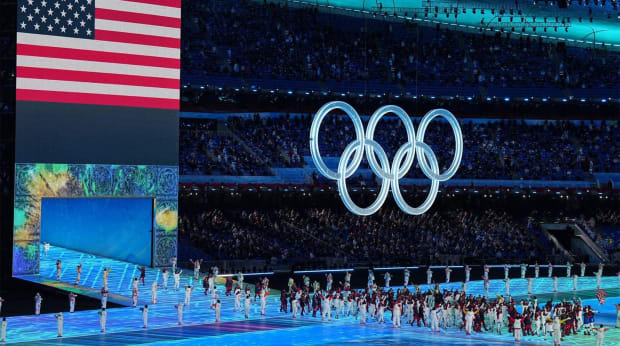A new report highlights the questions of transparency and independence surrounding the watchdog organization.

Erick W. Rasco/Sports Illustrated
Questions have been raised about the independence of the U.S. Center for SafeSport, as an ESPN and ABC report showed failures within its sexual misconduct probes and trust from within wavering.
The center is essentially a watchdog program, created to investigate sexual misconduct allegations within the U.S. Olympic & Paralympic Committee’s jurisdiction. According to ESPN and ABC, the organization takes the claims from USOPC and its national governing bodies and “handle[s] them free from the influence of money and medals, and maintain[s] a public database of sanctioned individuals.” It was created in 2017, the same year as Larry Nassar’s sentencing.
However, the media outlets’ investigation and subsequent interviews paint a different picture than the one designed for SafeSport, showing how it's “hampered by significant legal setbacks, disputes over transparency and lingering questions about its independence.”
The findings stemming from ESPN and ABC’s report ranged, including:
- Athletes or someone who made an allegation of abuse could not keep the reports or findings from their cases, prohibited from sharing them publicly.
- USOPC is the largest source of funding for the center, contributing $20 million annually. The two media outlets found that a portion of this stems from individual sports federations. The fees are partially based on the number of allegations reported, meaning more allegations lead to higher fees.
- Despite the center’s ruling on an allegation, there have been instances of those punishments being lessened or revoked following appeals to independent arbitrators, such as with Olympic Taekwondo coach Jean Lopes. He was accused of sexual assault, and per ESPN and ABC, SafeSport found evidence of “decades long pattern of sexual misconduct.” His lifetime ban was later overturned. According to the outlets, 42% of appeals have resulted in modified or eliminated punishments.
- On some instances, even if SafeSport found that a coach did sexually assault an athlete on numerous occasions, they would be allowed to continue coaching without “official public record of the claims made against them, even as their sports’ national governing bodies paid millions of dollars to settle lawsuits related to their alleged sexual misconduct, potentially exposing the federations to additional liability for any future alleged misconduct.”
According to ESPN and ABC, when a ban or punishment has been completed, there is typically not any public record of the allegation as the coach’s name is taken off the public database.
Athletes have continued to be critical of the watchdog organization. Olympic gold medalist Aly Raisman pointed out during testimony before the Senate Judiciary Committee in September, “If you’re SafeSport, and you’re funded by the organization you’re investigating, they’re likely not going to do the right thing. It’s a complete mess, and the priority doesn’t seem to be the safety and well-being of athletes.”